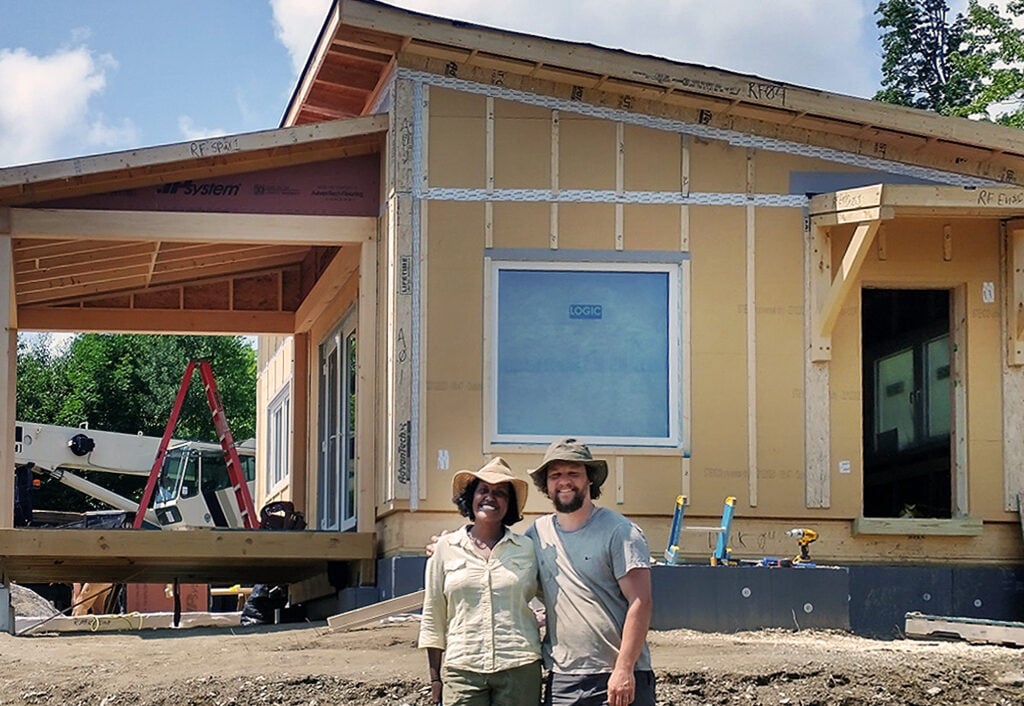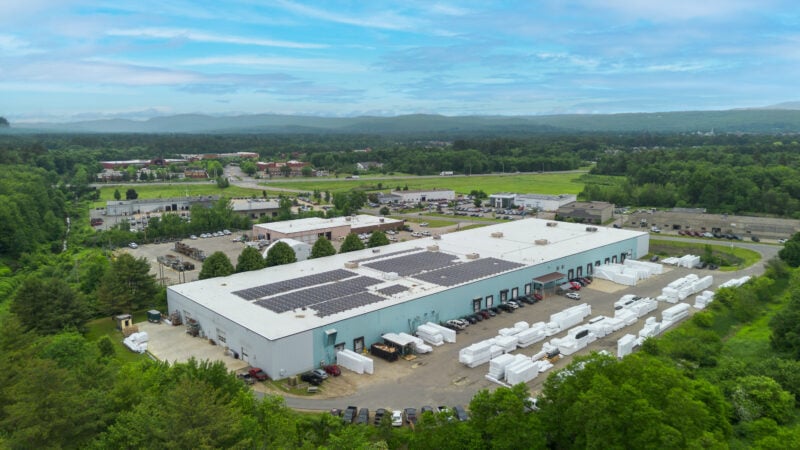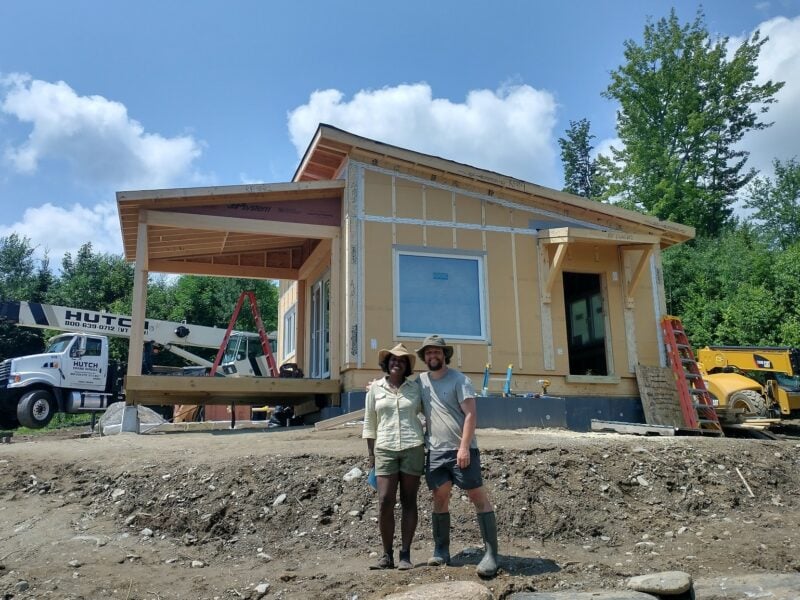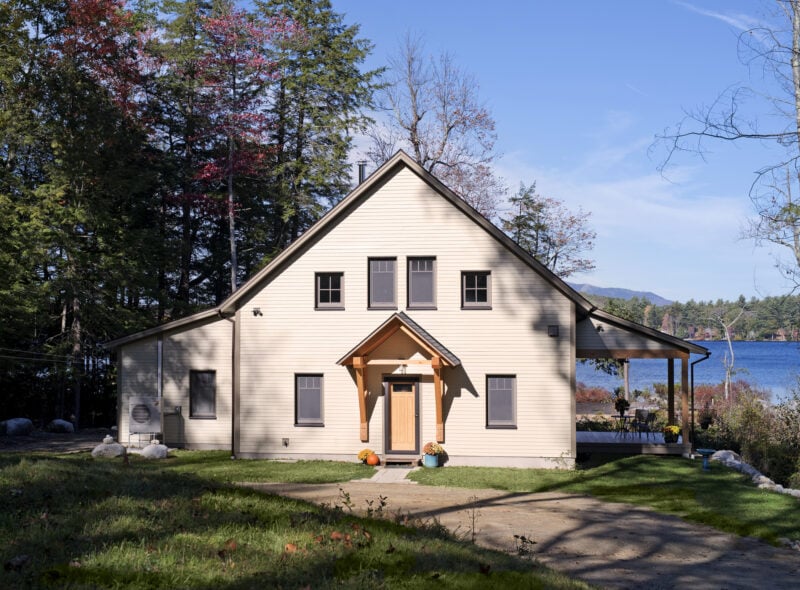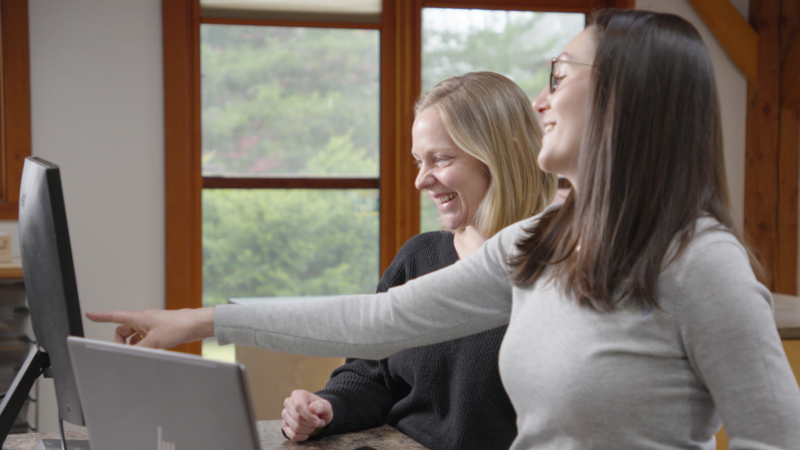We’ve recently visited several Unity projects where the owners have done much of the work, and that has us thinking about owner-builders: clients who either general contract the construction of their own home, or perform much of the hands-on work themselves.
Is Unity a good fit for owner-builders? The answer, as with so much in life, is “it depends.” While it’s easy to see the advantages of being an owner-builder, there are also significant pitfalls, some of which may not be apparent to an inexperienced owner who “doesn’t know what he/she doesn’t know.”
The potential advantages include:
- Not having to hire, coordinate with or wait on a local general contractor (GC)
- Possibly saving money by not paying professionals, and by creatively sourcing materials from places like Craigslist, IKEA, Home Depot, etc.
- Taking time to make everything just as you’d like it, without feeling rushed by the GC’s schedule
- Experiencing the immense satisfaction that comes from creating your own home
But these advantages are not guaranteed. For example, subcontractors such as plumbers and electricians might charge more to work for an owner-builder, and there’s the added challenge of getting them actually to show up on a jobsite where they don’t necessarily have a strong allegiance to the owner.
There are other significant potential disadvantages to doing work on your own home, including:
- It might cost more due to mistakes, mark-ups from subs, mark-ups on materials, etc.
- The project will likely take longer than if built by a professional
- The quality of the work may reflect the owner’s lack of experience
- Banks and lending institutions may not allow it
- The project will be more work for you the owner, and it’s likely to be more stressful
Of the nearly 150 Unity homes that have been built during the past 9 years, only a handful have been with true owner-builders who general contracted the entire process. The most recent example was a professional builder, Mason Lord, who’s building a Unity Zum for his own residence in Sharon, CT.
More commonly the Unity clients who work on their own homes hire a general contractor who is comfortable with the owner doing some of the work. Typically the owner and the GC will identify a subset of tasks that are well-defined and “stand-alone” for the owner to take on. For example, it usually doesn’t make sense for the owner to tackle contracting the site work and foundation, because this work needs to be well-coordinated with other trades such as plumbing, electrical and HVAC. But many of the tasks that come later in the project—particularly after the sheetrocking phase—can be good options for the owner to manage and/or do.
Tasks such as installing cabinets and interior doors, laying flooring and tile, installing trim and painting could be appropriate for a capable owner. Examples of tasks that Unity owner-builders have done recently include:
- General contracting the construction of a Zum in Hanover, NH
- Finishing the interior of a Swedish-inspired Xyla in northern VT
- Teaming up with a local GC to do much of the work on a Värm in upstate New York
- Finishing the interior of a Nano in central NH
- Installing a large tile backsplash and building furniture for a Tradd in Hollis, NH
The decision to take on a significant portion of the construction work on your own home shouldn’t be made without careful consideration. If you haven’t done something like this before, you’ll probably find that it’s more difficult and time-consuming than you had anticipated.
There are many factors that can enhance the chances of success for owner-builders, including:
- General contracting experience
- Experience doing carpentry, cabinetmaking or other trades (plumbing, electrical, etc.)
- Project management experience—whether in construction or another field
- Having the interest and enthusiasm to do the work (not doing it just to save money)
- Keeping the design and finishes relatively simple
- Having access to the appropriate tools and equipment for the work
- Having friends and relatives in the trades who are willing to help out
- Not financing the project through a bank (banks don’t like half-finished projects)
- Having plenty of time and patience
- Being well-organized and detail-oriented, and having tolerance for imperfections
- Living near the project during construction
If you decide to go the owner-builder route, we recommend having a Plan B in case it doesn’t work out. That might be as simple as letting go of your original time frame for the project, or as radical as hiring a professional to finish the work for you.
At Unity we’re enthusiastic about working with owner-builders, because their efforts are directly furthering our mission to make high performance homes more affordable. If you think you might be up for the challenge of working on your own home, we’d be happy to discuss the pros and cons with you in more detail.
